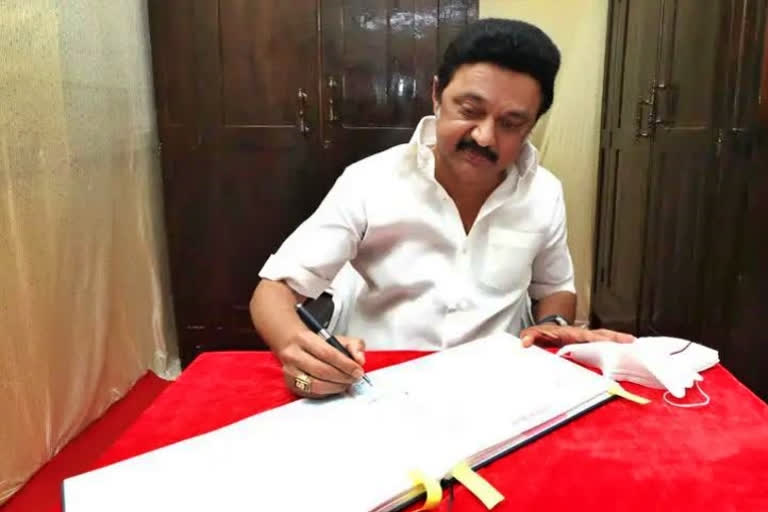Chennai: Absence of reliable and quantifiable data to scientifically ascertain social and educational backwardness continues to be a hurdle in making quotas politically expedient. For the judiciary, this was the benchmark in sealing the fate of the 10.5% horizontal reservation for the dominant Vanniyar community within the MBCs. With the Supreme Court putting the ball in the State Government's court, the options for Chief Minister MK Stalin are limited as it is a legacy of the previous AIADMK regime.
The apex court ruling upholding caste as the primary determinant of backwardness and a starting point for sub-quotas is nothing new. However, the dictum that any quota needs to be backed by relevant data does not give a free hand to a government in extending reservation as a tool of political expediency. This has been reiterated in many other instances as in the case of the Maratha quota judgment as well.
In its compulsion to cobble up an alliance with the Vanniyar-dominant Pattali Makkal Katchi (PMK) ahead of the 2021 assembly elections, the AIADMK government of Edappadi K Palaniswami (EPS) had hastily passed the legislation providing for the 10.5 quota to the community, 7% to the DNCs and a few MBCs and 2.5 for the rest. This last-ditch effort had backfired on both the AIADMK and the PMK in the elections. They lost badly in Northern Tamil Nadu, where Vanniyars are highly concentrated. Similar was the case in the South.
The legislation provides for a 10.5% exclusive quota for the Vanniyars and 24 sub-sects from within the 20% quota for the MBCs, which comprises 115 castes. Now, with the apex court striking it down, the DMK is in an unenviable position to carry out an exhaustive study of population percentages of caste groups and ascertain the socio-economic conditions as well as representation in professional courses and government services. The supreme court has rejected the Ambasankar Commission report (1983), terming it obsolete. Now, the state government could either go ahead with a caste enumeration or task the State Backward Classes Commission to carry out the task. Here again, the problem is not a proportional representation for a community but adequate representation as the court has maintained. The court had held that in the absence of any exercise undertaken or any finding arrived at to demonstrate that members of the Vanniyakula Kshatriya community are unable to compete with the remaining communities within the MBCs and DNCs, the 10.5% reservation was unacceptable.
According to the Ambasankar Commission, of the total population of 4,99,90,943, the MBCs and De-notified Tribes (DNCs) accounted for 1,23,17,745, which is roughly 24.6%. Of this, the Vanniyars were 65,04,855 which is 13.012%. Then came the Janarthanam Commission report in 2011. Factoring both as the basis, the Thanikachalam Commission in 2021 recommended a 10.5% exclusive quota for the community. Now, the population of the state is 6.8 crore, a 35% jump, making it mandatory for a new survey. For, the Janarthanam Commission was submitted in haste and the Thanikachalam Commission gave a letter affirming the 10.5% quota on February 22, 2021, on a request from the government days before the assembly elections. This timeline and the electoral motives have not escaped the scrutiny of the supreme court.
With the PMK demanding another legislation and the principal opposition AIADMK accusing the DMK government of being slack in this matter, the DMK is expected to weigh its options before taking any step. The PMK is hopeful that caste enumeration will help overcome the hurdles in the path of the exclusive quota. But, according to analysts, it does not seem that easy as of now and the DMK might not be in a hurry.
Also read: Stalin's Book Launch: Springboard for foray into National Politics



